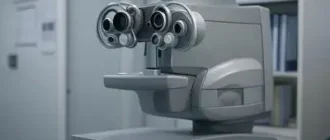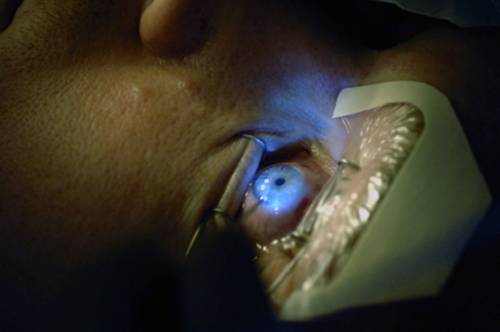Retinal detachment is a serious condition that can lead to permanent vision loss if not treated promptly. Fortunately, it can often be repaired with a surgical procedure.
When and How Is Retinal Detachment Surgery Performed
In order to treat an eye problem where the retina has been detached from the back of the eye, retinal detachment surgery is done. This may be caused by a variety of elements, including trauma, aging, and specific medical disorders. Get medical help as soon as you can since a detached retina might cause visual loss if it is not addressed.
Surgery is frequently the most efficient approach to fix a detached retina. When the retina is fully torn away or when the detachment is severe enough to increase the danger of permanent vision loss, surgery is recommended. If the retinal tear or hole, a medical condition like diabetes, or both caused the separation, surgery may also be advised.
Using a mix of cryotherapy and lasers, the retina will be reattached throughout the course of the treatment. Cryotherapy is utilized to freeze the region around the tear or hole to prevent further separation while the laser is used to seal the retina to the back of the eye.
After the procedure, the patient must be closely watched for any indications of infection or additional dislocation. Rarely would further therapies be required to guarantee the retina’s appropriate, long-lasting adhesion.
When you suspect you may have a detached retina, it’s crucial to be checked out right away because retinal detachment surgery is a difficult treatment. The likelihood of recovering vision is significantly boosted with quick therapy.

What Are the Risks and Success Rate of Retinal Detachment Surgery?
Retinal detachment surgery is a common procedure used to treat a variety of eye conditions, including retinal tears, macular holes, and vitreous hemorrhages. While the surgery is generally successful, there are certain risks associated with it. Understanding these risks and the success rate of the procedure can help you make an informed decision about whether or not to proceed with the surgery.
Risks
- Infection: As with any surgery, there is a risk of infection. This risk is generally low, but it is important to be aware of it.
- Bleeding: Bleeding can occur during the surgery, and it can also occur after the surgery.
- Vision Loss: Vision loss is a potential risk associated with retinal detachment surgery.
- Retinal Detachment Recurrence: Retinal detachment is a potential complication of the surgery. This risk is usually low, but it is important to be aware of it.
Success Rate Reports
Studies have shown that retinal detachment surgery is generally successful. According to one study, the success rate of the surgery is approximately 90%. Another study found that the success rate of the surgery is approximately 95%.
Overall, retinal detachment surgery is generally successful, but there are certain risks associated with it. It is important to be aware of these risks and the success rate of the procedure before making a decision about whether or not to proceed with the surgery.
What Is the Follow Up After Retinal Detachment Surgery?
Making an appointment for a post-operative visit with your doctor is the first step in the follow-up procedure. Within one to two weeks following the procedure, make an appointment for this visit. Your doctor will examine your eye at this session and look for any indicators of inflammation or infection. They could also check your eyesight to see whether it’s getting better.
After the procedure, it’s crucial to look after your eye. This includes using safety goggles outside, staying away from demanding activities, and not rubbing or scratching your eyes. Swimming and contact sports should also be avoided for at least six weeks following surgery.
Last but not least, it’s crucial to adhere to your doctor’s recommendations for any drugs or therapies they may recommend. This can entail using eye drops to lessen irritation or taking antibiotics.
You can make sure your retinal detachment surgery was successful and that your eyesight is getting better by taking the actions listed below. Be sure to speak with your doctor if you have any queries or worries regarding the follow-up procedure.
See also: Retina Problems and Diseases
Conclusion
In conclusion, retinal detachment can be repaired with a surgical procedure. The success rate is typically high, although there are some risks associated with the procedure. After the surgery, the patient will need to be monitored closely to ensure that the retina is healing properly.





